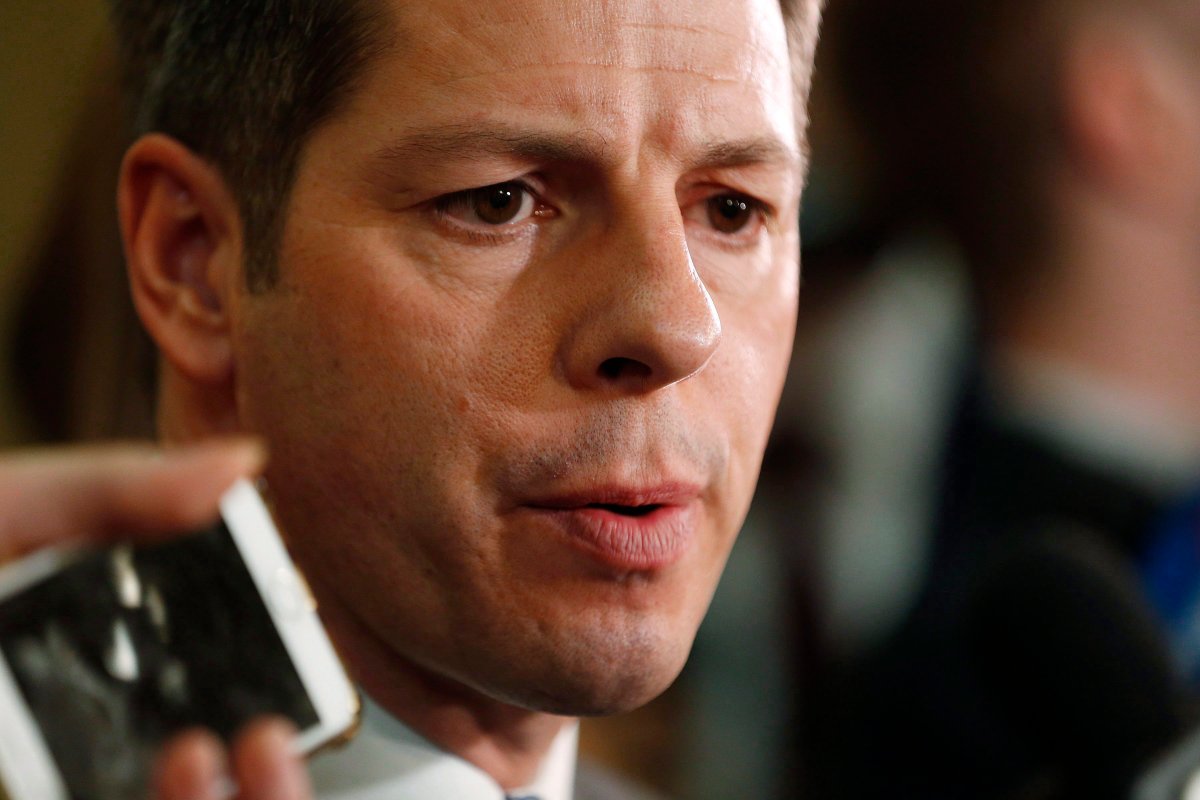Winnipeg’s mayor has a simple message: Don’t drink or inject household cleaners.

Brian Bowman gave the seemingly common-sense advice at a press conference held to update Winnipeggers on the city’s response to COVID-19 Friday.
The warning comes after U.S. President Donald Trump floated the idea of injecting or ingesting bleach as a possible cure for COVID-19 Thursday.

Injecting yourself with or eating bleach — a poison — will make you sick, and you shouldn’t do it, according to doctors.
“I can’t believe I have to say this. But I’m going to just urge Winnipeggers to not consume or inject any disinfectants,” Bowman said Friday.
“That includes Windex, that includes Clorox, that includes Lysol, and other household cleaning products.
“These are products not to be consumed or injected and we would urge people, please observe the safety warnings on the labels and follow the expertise from health officials, including those at Manitoba Health.”

Bowman said he’s heard no reports of anyone in Winnipeg drinking or injecting household cleaners, but added he has had people asking him about it online.
“Obviously, with news over the last 24 hours, there’s a lot of discussion about it so I just wanted to add my voice to remind people to follow the safety warnings on those household cleaning products,” he said.
“Winnipeggers are consuming news, we just don’t want them to consume cleaning products.”
Bowman suggested Winnipeggers instead listen to the advice of Manitoba’s health officials.
“Honestly, I mean, I can’t believe that has to be said in a press conference, but, I just want to remind people,” he said.
“We’ve got some great public health officials … in our public health-care system, they are leading the charge on health and I have not heard them say anything remotely close to cleaning products.”
Manitoba’s chief public health officer confirmed people shouldn’t drink bleach.
At a press conference later in the day Dr. Brent Roussin said Manitobans should rely on things like frequent hand-washing and social distancing to reduce their risk of COVID-19.
“Follow only the advice of a health-care provider on these things,” he said.
“Clearly, we would give the message to not ingest or inject any disinfectants.”
‘Dangerous and idiotic’
Drinking or injecting disinfectant is more likely to in fact kill humans than the virus, Paul Hunter, a professor of medicine at the University of East Anglia in Britain, said.
“This is one of the most dangerous and idiotic suggestions made so far in how one might actually treat COVID-19,” he said.
“It is hugely irresponsible because, sadly, there are people around the world who might believe this sort of nonsense and try it out for themselves.”
Reckitt Benckiser, which makes Lysol cleaning products, also warned against using disinfectant in any way on the human body.
“We must be clear that under no circumstance should our disinfectant products be administered into the human body (through injection, ingestion or any other route),” the company wrote in a statement.
Americans have already been ingesting more disinfectant than normal during the coronavirus crisis, according to research released by the U.S. Centers for Disease Control and Prevention earlier this month.
- ‘Shock and disbelief’ after Manitoba school trustee’s Indigenous comments
- Canadian man dies during Texas Ironman event. His widow wants answers as to why
- Several baby products have been recalled by Health Canada. Here’s the list
- ‘Sciatica was gone’: hospital performs robot-assisted spinal surgery in Canadian first
CDC researchers saw a 20.4 per cent spike in calls to poison control related to ingesting disinfectant in March compared to the same period of time in 2019.
–With files from Josh K. Elliot
Questions about COVID-19? Here are some things you need to know:
Health officials caution against all international travel. Returning travellers are legally obligated to self-isolate for 14 days, beginning March 26, in case they develop symptoms and to prevent spreading the virus to others. Some provinces and territories have also implemented additional recommendations or enforcement measures to ensure those returning to the area self-isolate.
Symptoms can include fever, cough and difficulty breathing — very similar to a cold or flu. Some people can develop a more severe illness. People most at risk of this include older adults and people with severe chronic medical conditions like heart, lung or kidney disease. If you develop symptoms, contact public health authorities.
To prevent the virus from spreading, experts recommend frequent handwashing and coughing into your sleeve. They also recommend minimizing contact with others, staying home as much as possible and maintaining a distance of two metres from other people if you go out.
For full COVID-19 coverage from Global News, click here.





Comments